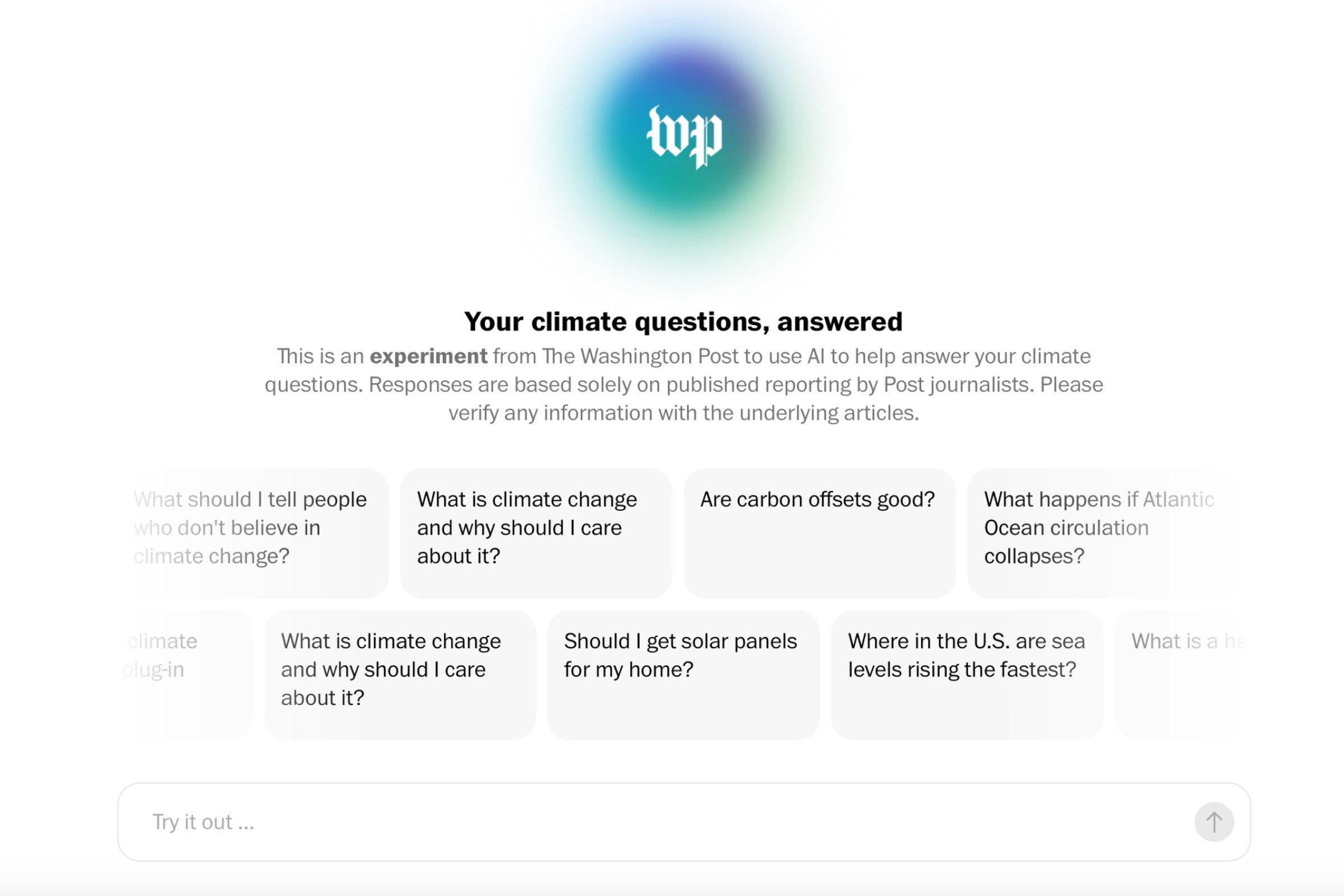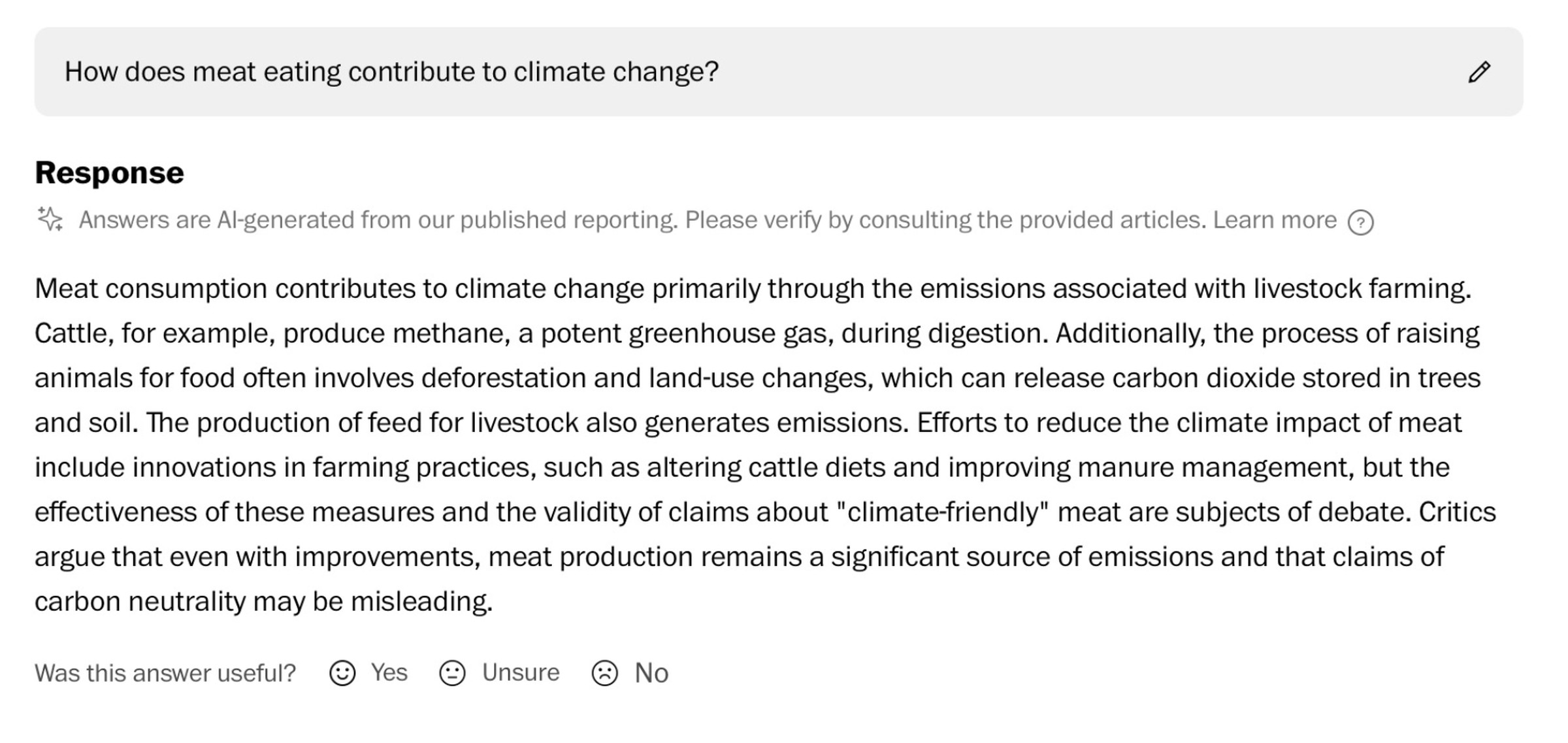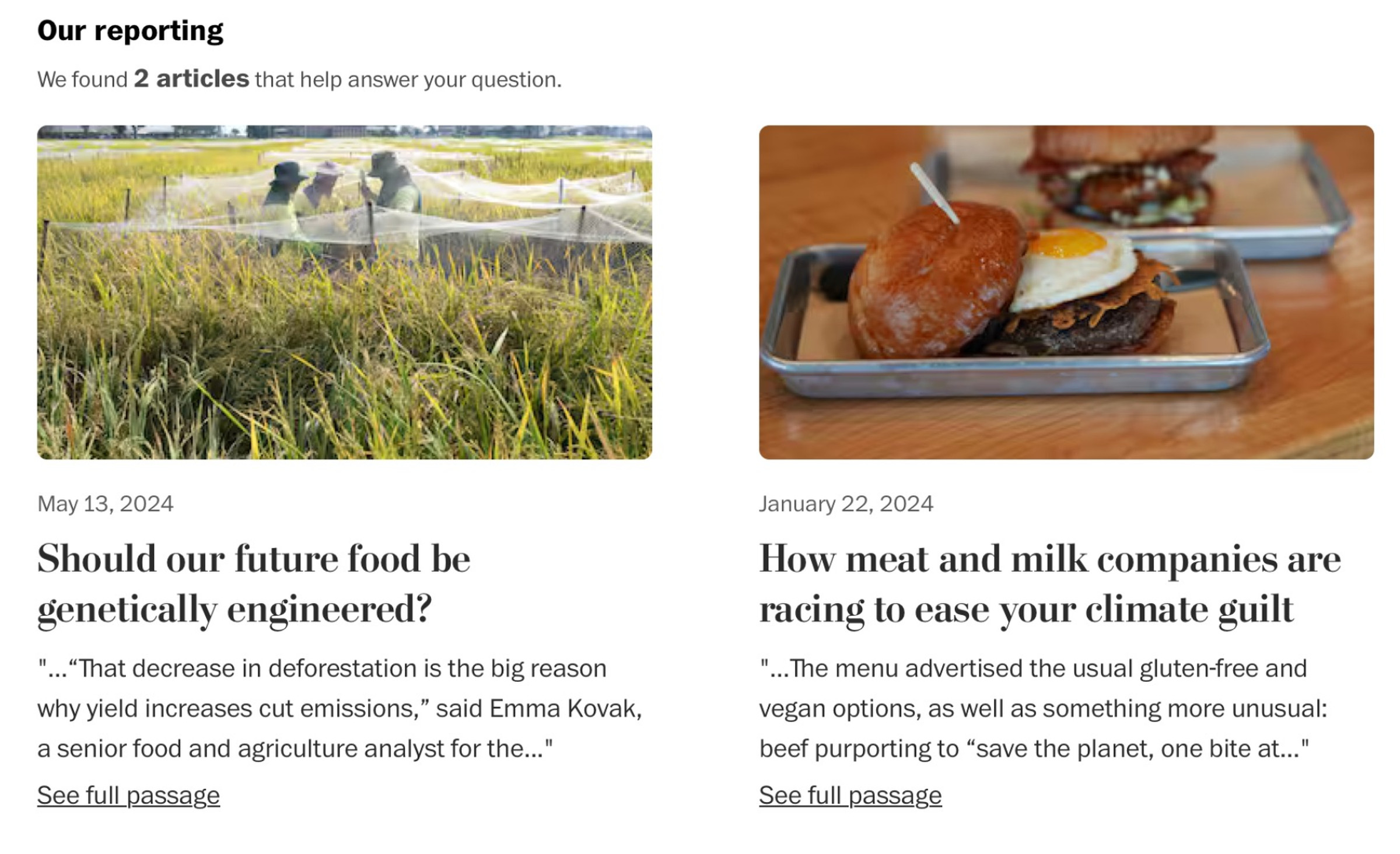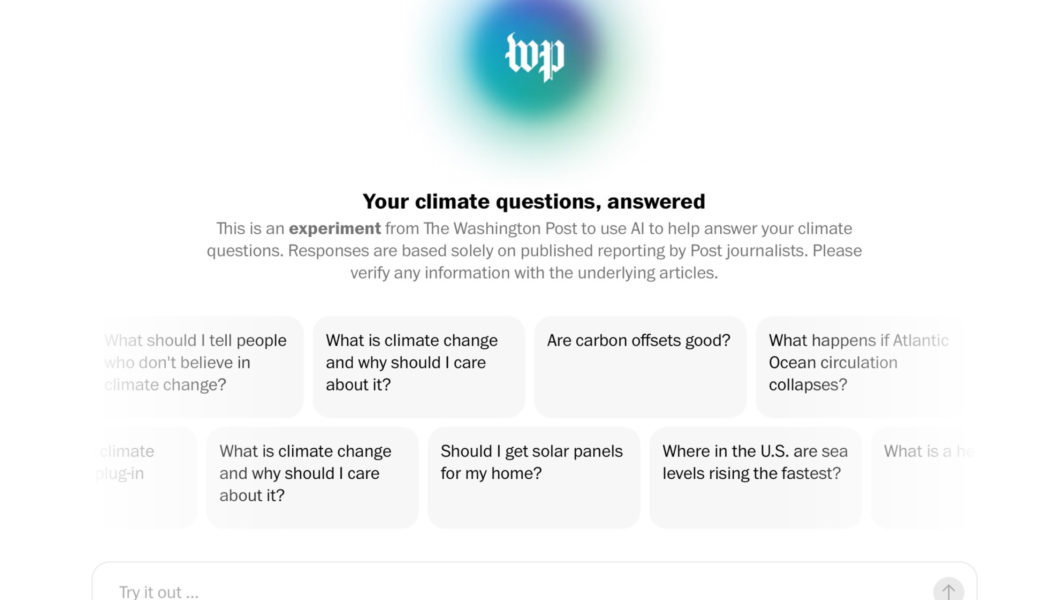The chatbot will use articles from The Washington Post’s climate section to inform its answers.
Share this story

The Washington Post is sticking a new climate-focused AI chatbot inside its homepage, app, and articles. The experimental tool, called Climate Answers, will use the outlet’s breadth of reporting to answer questions about climate change, the environment, sustainable energy, and more.
Some of the questions you can ask the chatbot include things like, “Should I get solar panels for my home?” or “Where in the US are sea levels rising the fastest?” Much like the other AI chatbots we’ve seen, it will then serve up a summary using the information it’s been trained on. In this case, Climate Answers uses the articles within The Washington Post’s climate section — as far back as the section’s launch in 2016 — to answer questions.


“We have a lot of innovative and original reporting,” Vineet Khosla, The Washington Post’s chief technology officer, said during an interview with The Verge. “Somewhere in the years and years of the data-rich reporting we have done, there is an answer buried in one of the things we have written.”
Beneath the answer, you’ll find links to the articles that the chatbot used to produce its answer, along with the relevant snippet it pulled its information from. The tool is based on a large language model from OpenAI, but The Washington Post is also experimenting with AI models from Mistral and Meta’s Llama.


When asked about the possibility of misinformation, Khosla said Climate Answers won’t produce a response for questions it doesn’t have an answer for. “Unlike other answer services, we really are baking this into verified journalism,” Khosla said. “If we don’t know the answer, I’d rather say ‘I don’t know’ than make up an answer.” However, we plan to try the tool when it launches today to get a sense of its guardrails.
The Washington Post isn’t the only news outlet that’s relying on its archive of information to power an AI chatbot. In March, the Financial Times started testing Ask FT, a chatbot that subscribers can use to get answers about topics related to the outlet’s reporting. Meanwhile, other publishers, like News Corp, Axel Springer, Dotdash Meredith, and The Verge’s parent company, Vox Media, have jumped into licensing partnerships with OpenAI.
The Washington Post has been gradually building on its use of AI; according to Khosla, the outlet has also rolled out AI-powered summaries for some of its articles. Even though The Washington Post’s new chatbot is only able to field climate-related questions for now, Khosla didn’t rule out the possibility of expanding it across other topics the outlet covers. “We absolutely expect this experiment to extend and scale to everything The Washington Post does,” Khosla said.








